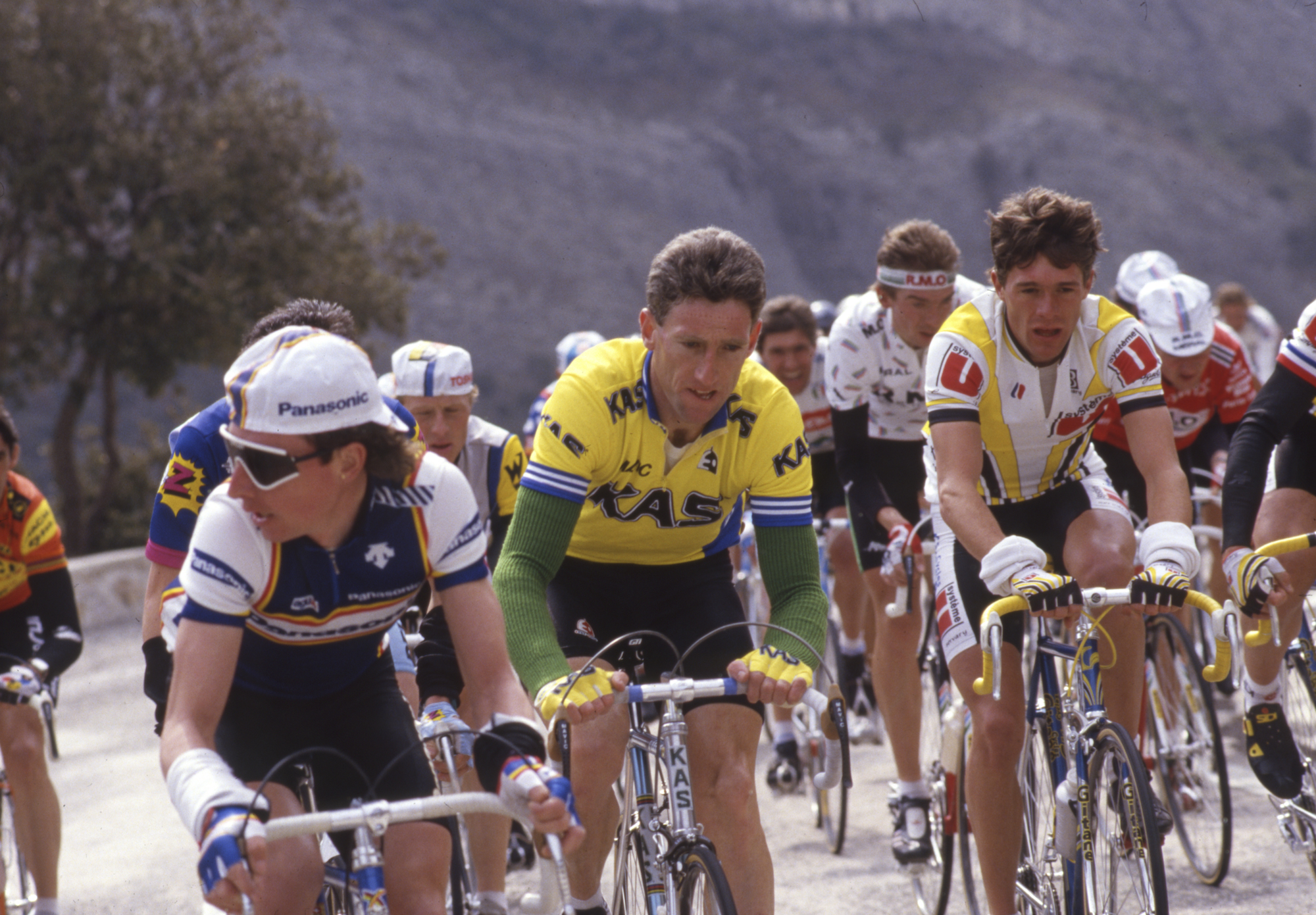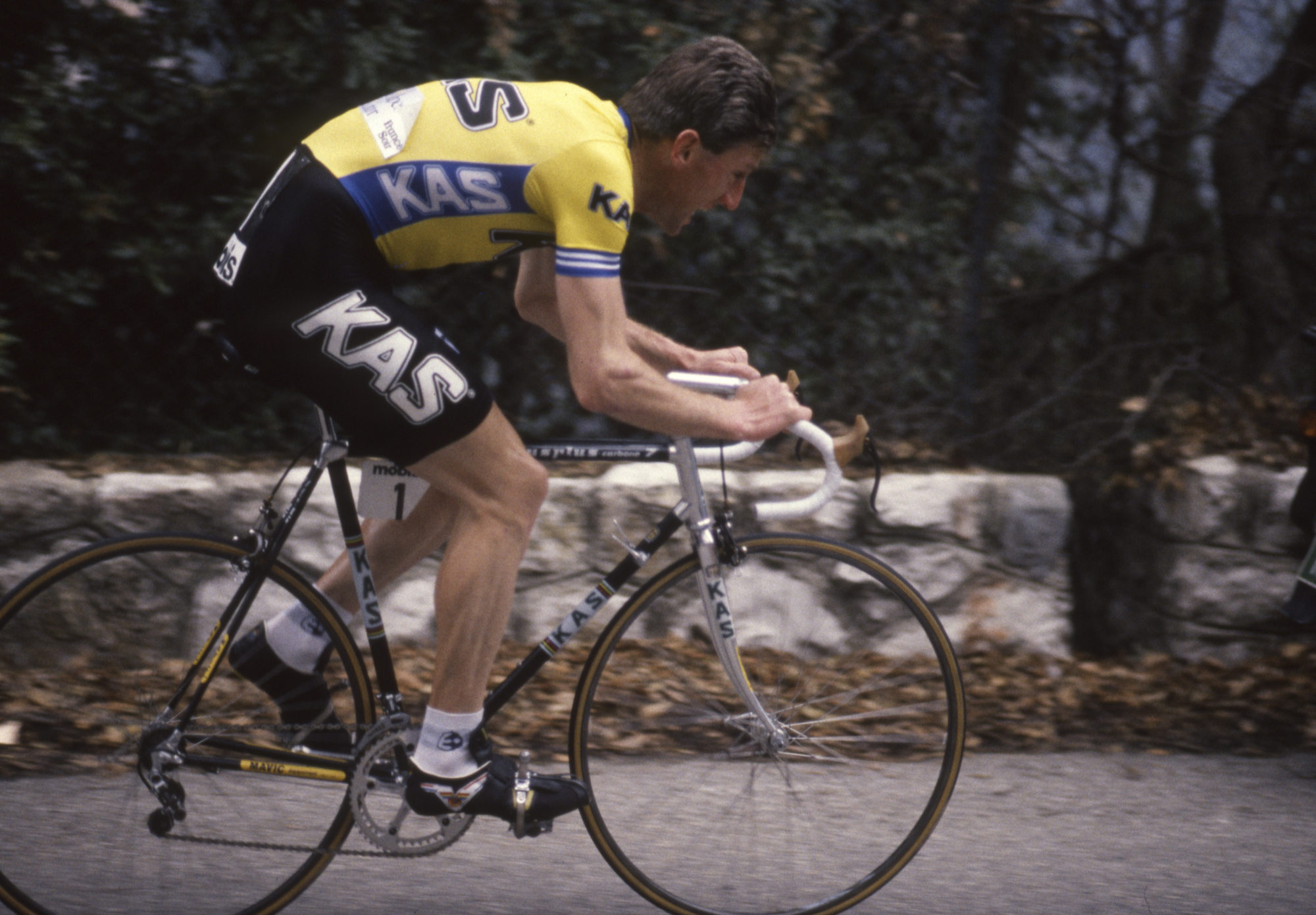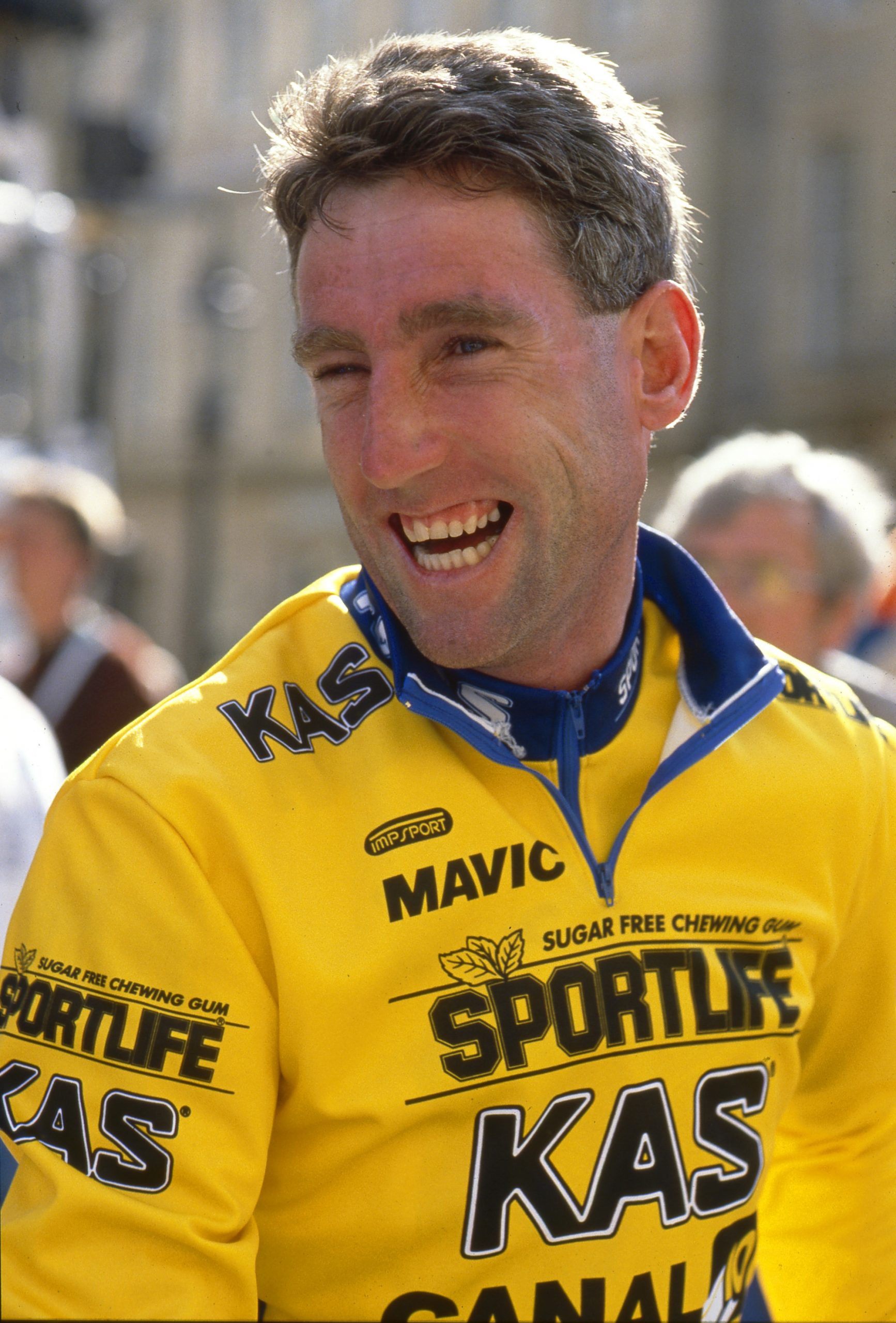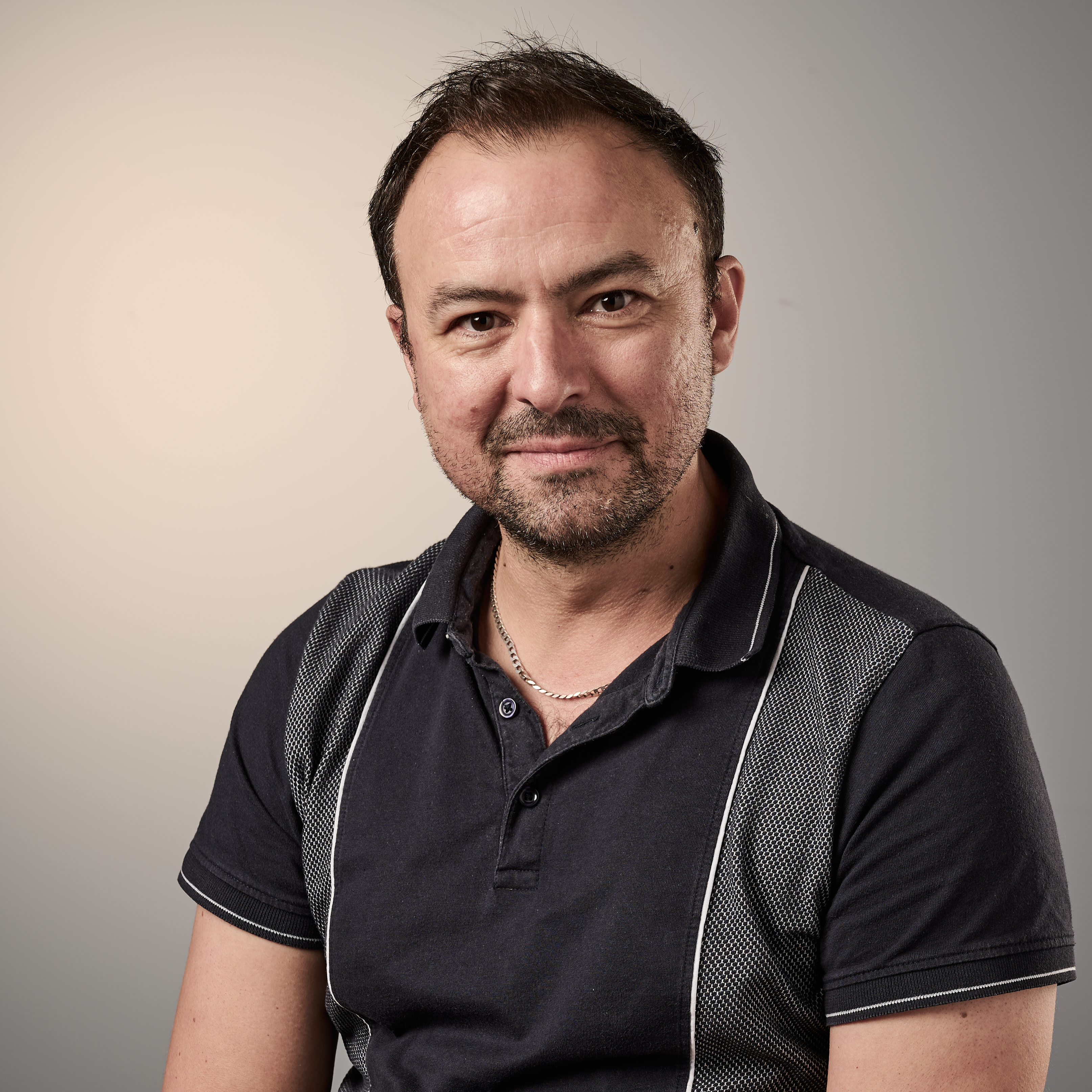King Kelly reigns in Spain: Retracing Ireland's first Vuelta a España victory
Sean Kelly recounts the story of Ireland's first ever win in the Vuelta a España to James Shrubsall


Sean Kelly at the Tour de France in 1987 (Photo by Nutan/Gamma-Rapho via Getty Images)
Ten top-fives; six podiums and two stages. In 1988 this was all the work of one man, in one Grand Tour — the rider being Sean Kelly and the race being the Vuelta a España. Perhaps most impressively, Kelly finished every single stage in the top 10, on his way to becoming the first Irishman – and the first English speaker – to win the Vuelta.
The previous year, 1987, the 30-year-old Irishman from Carrick-on-Suir had come heartbreakingly close to becoming the first Irishman to win a Grand Tour. Having taken the leader’s jersey in the final time trial on stage 18, Kelly was forced to abandon the following day thanks to a painful saddle sore.
"To have to pull out was a huge disappointment, so 1988 was important for me," says Kelly of his return when, he says, he definitely felt the pull of unfinished business – not to mention the intent of his Spanish team sponsor Kas.
"When I went to the Kas team, the big boss at the first team meeting said, ‘I want to win a Vuelta — that’s the most important thing for me and my company.’
"And so the pressure was on from the beginning, that was the objective. From that moment – '87, '88 – it was the most important race on my programme."
Kelly had not always been a Grand Tour contender. Starting out his career as a sprinter, he had enjoyed a supremely successful first half of the 80s as a Classics rider, with two Paris-Roubaix, a Liège-Bastogne-Liège and a Milan-San Remo in his palmarès by the time he took the start line in Santa Cruz, Tenerife, for the 1988 Tour of Spain.
>>> Subscriptions deals for Cycling Weekly magazine
The latest race content, interviews, features, reviews and expert buying guides, direct to your inbox!
But at the outset of Kelly’s pro career, at Belgian team Flandria-Velda, boss Jean De Gribaldy had immediately recognised Kelly’s potential, planting the Grand Tour seed in the Irishman’s head.
"I was more of a sprinter," says Kelly. "And Jean de Gribaldy, who was the team owner, the team coach, the dietitian, everything... he said to me, ‘Look, if you can lose a lot of weight, then you could possibly win a big tour someday.’ And it all started slowly, working on it over a number of years."
Wins in Paris-Nice and, a few years later, the Tour de Suisse, showed that Kelly was on the right road to Grand Tour success – backed up on the ground by slowly improving results in the three-week races. Kelly never rode the Giro but had started his Grand Tour career the year after he turned pro. He had been getting consistently closer to winning in both the Vuelta and the Tour, and by the end of 1986, he had been fourth in the Tour and third in the Spanish race, as well as winning six points jerseys overall across the two.
Then came his agonisingly close brush with Vuelta victory the following year. A few months after that, he had to watch countryman Stephen Roche become the first Irishman to win a Grand Tour – two in fact, in the same year – when he won the Giro d’Italia and the Tour de France. This was compounded by the fact that Kelly, himself one of the big contenders for the Tour, was forced out when he broke his collarbone in a fall on stage 12.
But Roche’s successes that year had little bearing on Kelly at that stage, himself happy on his own trajectory, having won so many races and already regarded as a great. He does admit, however: "The Roche period that probably gave me a kick up the backside was when he appeared, in his first year [1981] and he won Paris-Nice and the Tour of Corsica. I’d been there for a number years, and I had my little niche where I was the Irish guy, and he arrived along," Kelly says.
"I thought, look I have to make an effort here otherwise he’s going to take all the glory and the limelight."
Sprinting to the finish

When Kelly took to the 1988 Vuelta start line in Tenerife, he had already taken his customary victory in Paris-Nice (his seventh), and won Setmana Catalana. Five days before the start of the Spanish tour he’d also won Ghent-Wevelgem – a perfect illustration of Kelly’s capacity for any type of race.
The Irishman set out his stall adequately in the 17km prologue with seventh place and then, true to Vuelta form, things got hilly only the next day. The BH team who, with three contenders, were a sort of 80s Movistar equivalent, put Spaniard Laudelino Cubino in the yellow leader’s jersey after he broke away on the Las Canteras pass.
And it was in the lead that Cubino would stay, right up to stage 16, when it would transfer to his team-mate Anselmo Fuerte.
Meanwhile, Kelly set about consolidating his GC position the way he did best – by tearing it up in the bunch sprints. In a performance the like of which is simply no longer seen by GC riders, he was consistently up there, scoring several top-six places including two thirds and a second. And this wasn’t just Kelly reverting to type – it was part of the plan.
"If I remember rightly, there were [bonus seconds] at the finish so that was the reason I was sprinting," Kelly explains. "I had to do it because sometimes in the mountains stages, I would lose a little bit of time here and there because my climbing, you know, that was my most difficult part as a GC contender…I’d lose a bit of time on the mountain-top finishes against the little lightweight guys."
It’s a typically modest statement from the man they still call King Kelly. In truth, he excelled at just about everything. Case in point – on stage 11, to the Riojan ski resort of Valdezcaray, Kelly won, leading in a small group including leader Cubino, former Vuelta champion Alvaro Pino and twice Tour de France KOM Luis Herrera, of Colombia.
But Kelly insists: "It’s a power man’s climb. It’s not a steep one, and then in the final, it does ease off…it flattens out to the finish. With that group I was in that day, most of the guys would have been not that fast in the sprint. So, you know, I was able to win on those sorts of mountains…that one suited me quite good, the type of climb it was."
That stage finish put Kelly in second place, 2.04 back – the perfect position from which to pounce on the race lead in the penultimate day’s time trial – a 30-kilometre individual test from Las Rozas to Collado Villalba, just outside of Madrid.
Of course, he would have to preserve that pouncing point through the difficult final week, and ideally take a bit more time in the process, despite his obvious ability against the clock.
It didn’t take long for that to happen. Leader Cubino cracked two days later, on the mountain-top finish to the Pyrenean ski station Estacion de Cerler. Kelly managed to hang on, gaining 1.55 on the Spaniard, which he attributes in no small part to a fellow Anglophone rider. "Robert Millar give me a pretty good dig out in the final climb that day. He gave me a hand-out, which was very much appreciated and I still remember quite well," Kelly says.
Perfect scenario

The Irishman, who was now just 33 seconds behind the lead, wasn’t going to have it all his own way though – the strength in depth of Cubino’s BH team meant that Kelly could take nothing for granted.
"BH had Fuerte, they had Cubino and they had Alvaro Pino – three guys that were capable of winning. That was a real problem because they were using all three to try to work me over."
And true to form, when Cubino did finally cede the yellow jersey on stage 16, it was to team-mate Fuerte, who had leapfrogged Kelly into second place just two days earlier.
But with Kelly still hovering just 28 seconds back and going nowhere, Fuerte could only wait and hope that the inevitable didn’t happen.
"It suited me because the penultimate time trial, I knew that’s where I was going to be the stronger one and you know, as long as BH had the jersey, it took the pressure off me and my team,” Kelly says. “It was the perfect scenario really."
>>> Cycling Weekly is available on your Smart phone, tablet and desktop
The inevitable did happen. Kelly beat Fuerte by nearly two minutes to insert himself comfortably into yellow with only the final stage to Madrid left to ride. And in case anyone thought they might steal a little time on that last day, the Irishman took fifth place in the ensuing bunch sprint, just for good measure.
Looking back now, Kelly is hesitant to call the Vuelta his best ever win – after all, he does have many to choose from.
"I was a rider who was maybe a bit spoiled," he reflects. "There are very few riders who can do the cobbled Classics like Paris-Roubaix or Tour of Flanders and also be a contender or possibly a winner of a
three-week tour. So for me, as stage racing goes, the Vuelta will be the most important one on my palmarès. The Classic races are another sort of event," he says.
But wherever the Vuelta sits in the hierarchy, Kelly, still modest to a fault, reserves the final word on the subject for his mentor.
"I think Jean de Gribaldy takes a big amount of the credit for it, because of the way he worked with me for a number of years to get to that level."
His win would bookend a 1980s halcyon period for Irish Grand Tour men that has not been matched since. Perhaps it will be one day, but whether any future rider will be able to imitate Kelly’s swashbuckling style – tearing up the bunch sprints, winning summit finishes and time trials alike, and with humility, too – seems unlikely.
This feature originally appeared in the print edition of Cycling Weekly, on sale in newsagents and supermarkets, priced £3.25.
After cutting his teeth on local and national newspapers, James began at Cycling Weekly as a sub-editor in 2000 when the current office was literally all fields.
Eventually becoming chief sub-editor, in 2016 he switched to the job of full-time writer, and covers news, racing and features.
He has worked at a variety of races, from the Classics to the Giro d'Italia – and this year will be his seventh Tour de France.
A lifelong cyclist and cycling fan, James's racing days (and most of his fitness) are now behind him. But he still rides regularly, both on the road and on the gravelly stuff.
